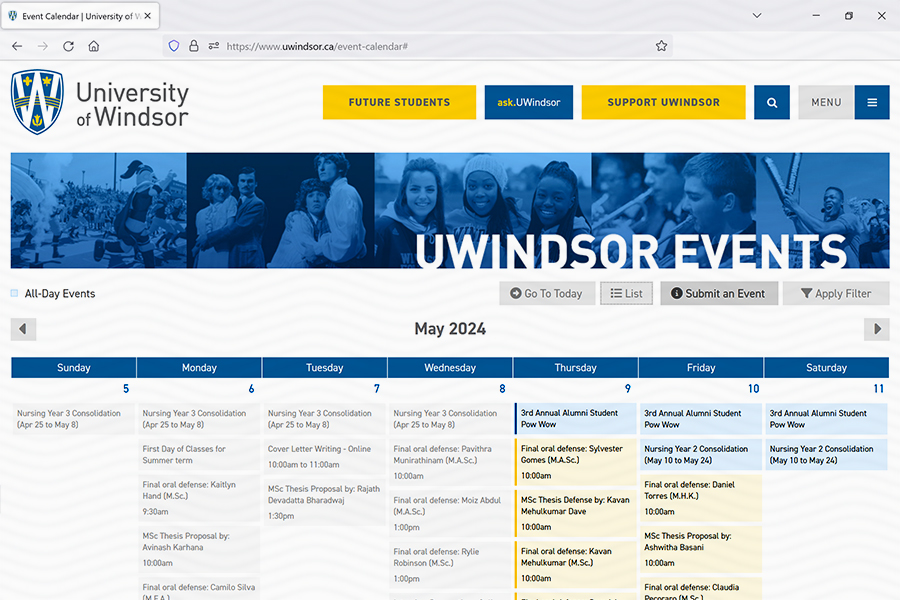
The University of Windsor’s Human Resources Information System (HRIS) is undergoing a transformational change. As mentioned in an email to staff, a new HRIS system, UWinsite People, will launch this fall, modernizing how the University handles employee data and human resources. The new platform will eliminate manual processes and help the campus work toward its strategic goals.
“The new HR system is a positive step in our commitment to equity, diversity, and inclusion (EDI) on campus,” says Clinton Beckford, vice-president, people, equity and inclusion. “It will help us enhance accountability with real-time data and assist in measuring our EDI goals. I would like to thank the incredible team of people who have worked to bring this to fruition.”
Planned to roll out in the fall, UWinsite People aims to improve human resources and payroll departmental processes, says Jody Fraser, associate vice-president, human resources.
“Our HR team is committed to bettering the way we work. UWinsite People will help us transform and re-evaluate how we work,” she says. “During the recent system integration testing, our staff tested the new platform to ensure that it will meet our ever-evolving institutional needs.”
In the first phase of the UWinsite People project, the Oracle-based HR and Payroll Services system will offer a solid foundation for administering institutional faculty and staff data. Employees will have the ability to update such information as home address and banking details, add vacation requests, report absences, view paycheque details, download T4s, and more, all in one centralized hub. Additionally, it will also streamline human resources, payroll, and finance processes, eliminating myUWinfo and my Attendance platforms.
A thorough implementation process that includes change management, communication, training, and resources will ensure the campus community is prepared for UWinsite People.
Visit the UWinsite People website for more information, to provide feedback, or to ask questions about the project.




